British Standard BS 7593:2019. Preparation, commissioning and maintenance of domestic heating and cooling water systems.
The British Standard code of practice (BS 7593:2019) details on how to prepare circulating water during the initial commissioning (or re-commissioning) of domestic central heating and water cooling systems. It also covers ongoing water treatment to ensure consumers enjoy optimum, efficient, trouble-free performance and protection against premature failure.
It applies to individual domestic premises when commissioning a system for the first time on a new build, or re-commissioning following the installation of a new boiler, or any other major remedial work. It’s not just about boilers. The guidance includes individual heating circuits within blocks of flats, heat interface units (HIU) and wet cooling systems too.
When does it come into force?
This Code of Practice came into effect on 31 May 2019.
How to comply?
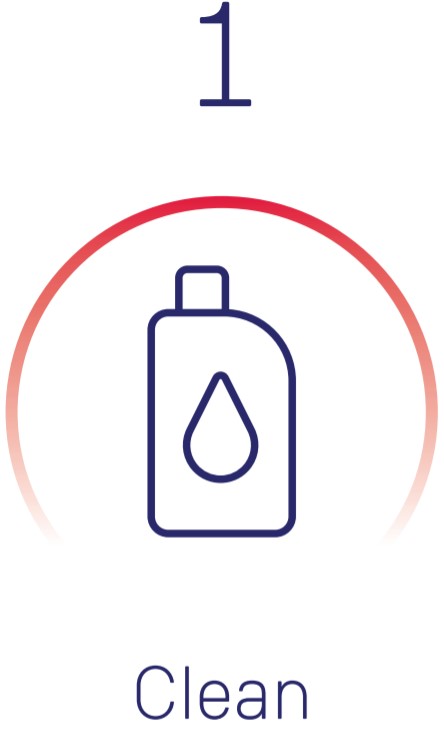
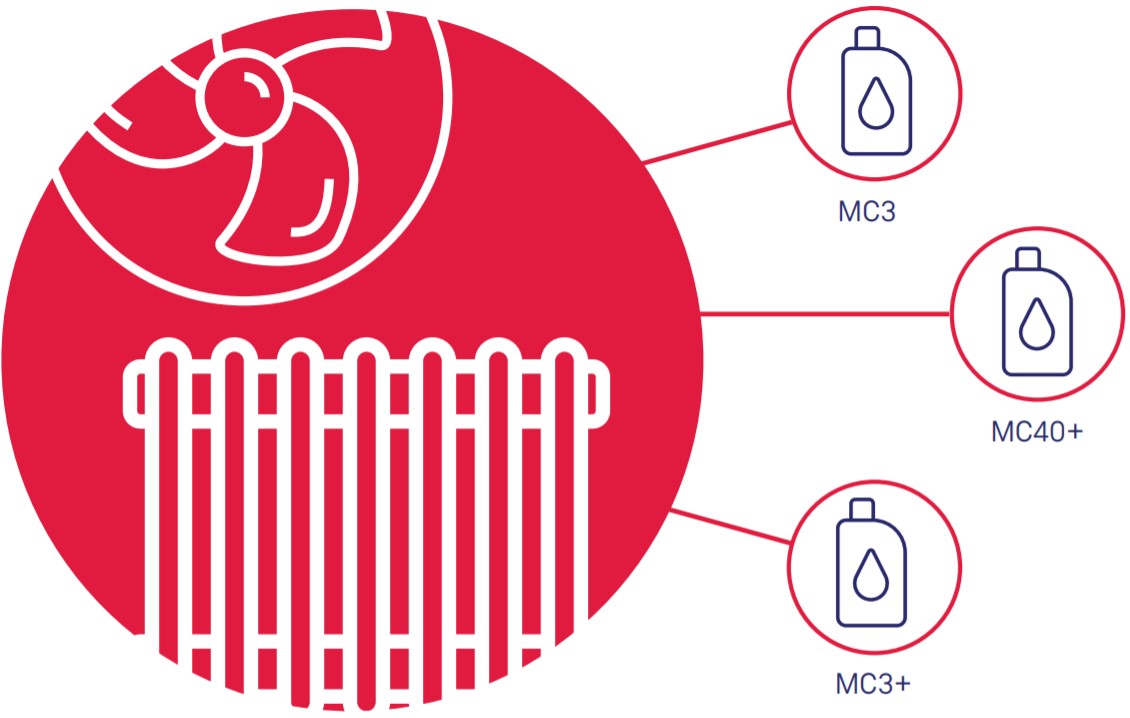
CLEAN
Use cleaning chemicals to shift any sludge that has already built up in the system’s pipes, radiators and boiler.
ACTION REQUIRED
All systems should be cleaned using a chemical product formulated specifically for heating and/or cooling systems - even brand new systems may have contaminants such as grease, solder, or installation debris.
We recomend using effective standard chemicals only.
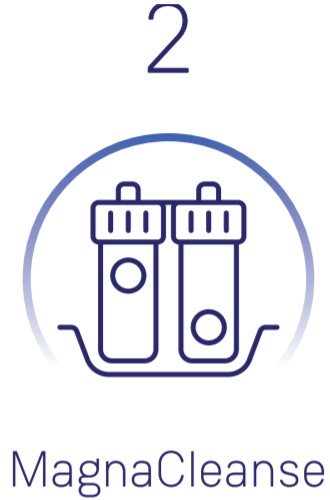
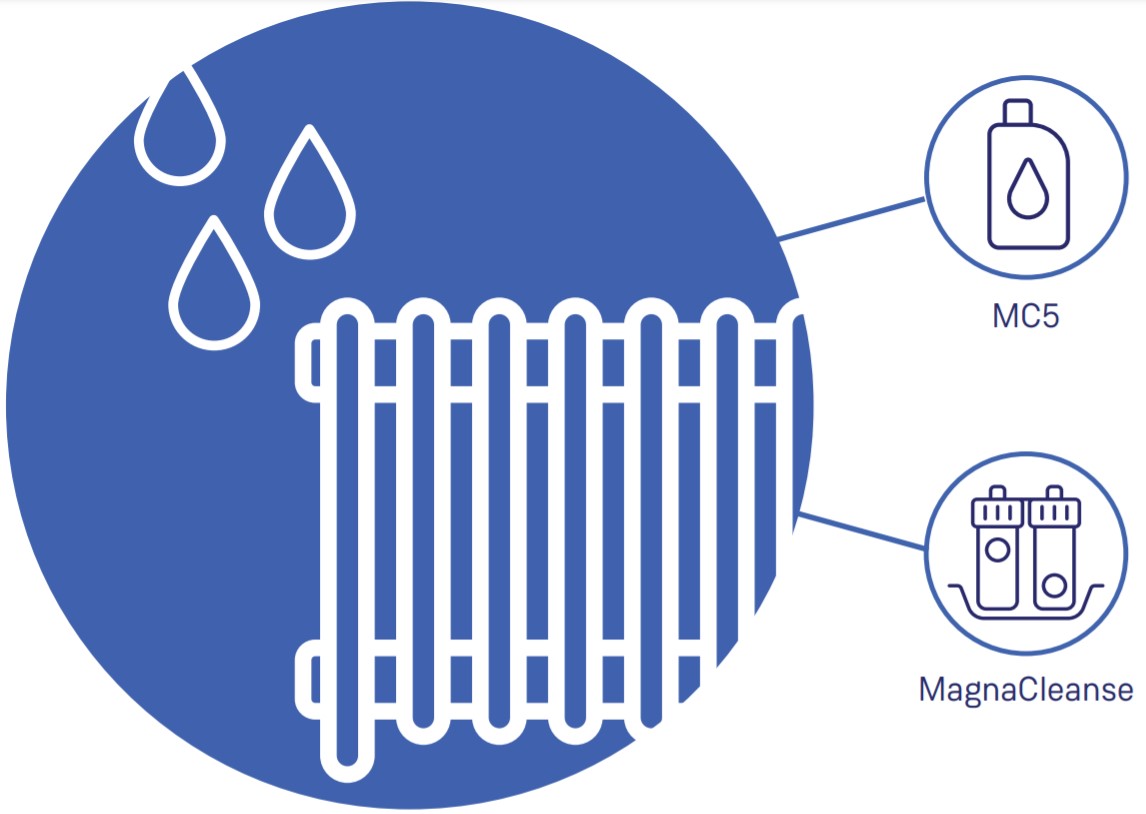
MAGNACLEANSE
Flush the entire system, so that the water is completely free of sludge.
ACTION REQUIRED
Flushing should be undertaken prior to commissioning a new system and during repair of an existing system. The speed and effectiveness of cleaning can be improved by magnetite capture and the mechanical vibration of radiators.
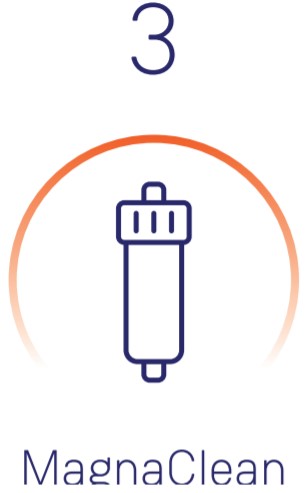
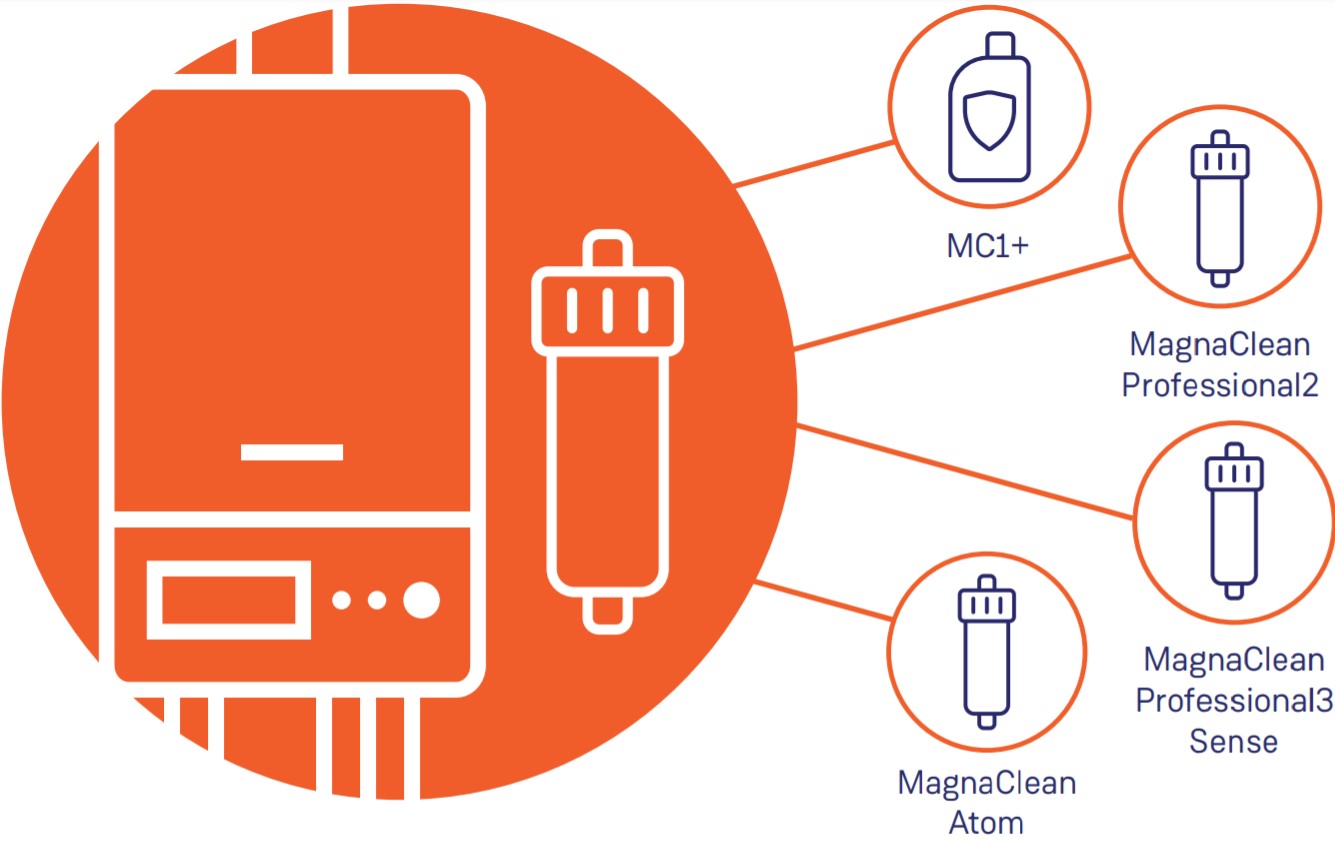
MAGNACLEAN
Fit a filter to keep freshly cleaned water clear. This will catch and collect any sludge that future corrosion could cause.
ACTION REQUIRED
An in-line filter should be fitted immediately after completing the clean, on all systems. In systems where a filter is already in place, it should be serviced as part of the recommissioning process.
We recomend installing industry leading filters like Adey Pro 2.
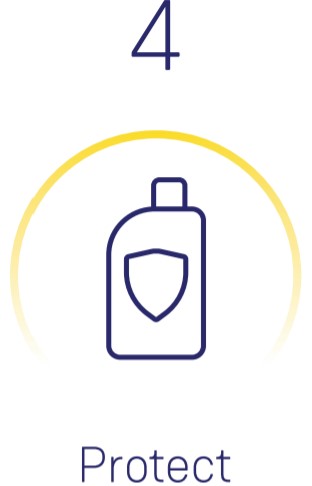
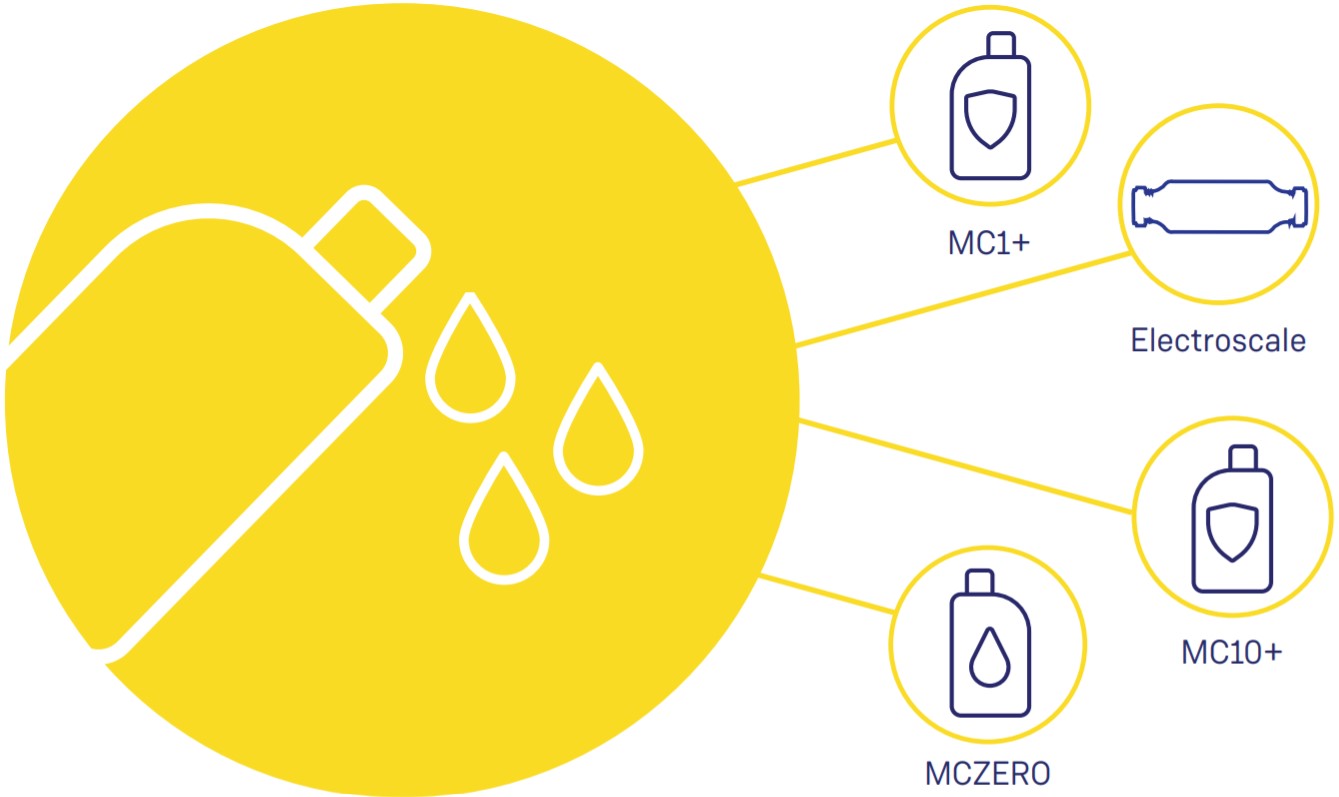
PROTECT
Dose the system with protective chemicals to slow and even stop corrosion. Preventing wear and tear helps reduce sludge.
ACTION REQUIRED
Chemical inhibitors should be added at the time of the final fill with fresh water. Biocides are particularly important for systems designed to run at temperatures below 60°C, such as underfloor heating and cooling systems.
One 275ml tube of Sentinel X100 Inhibitor is sufficient to treat a typical system of up to 10 radiators (100 litres).
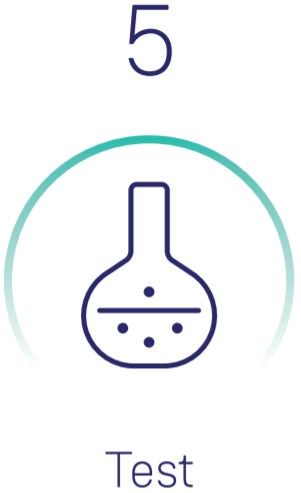
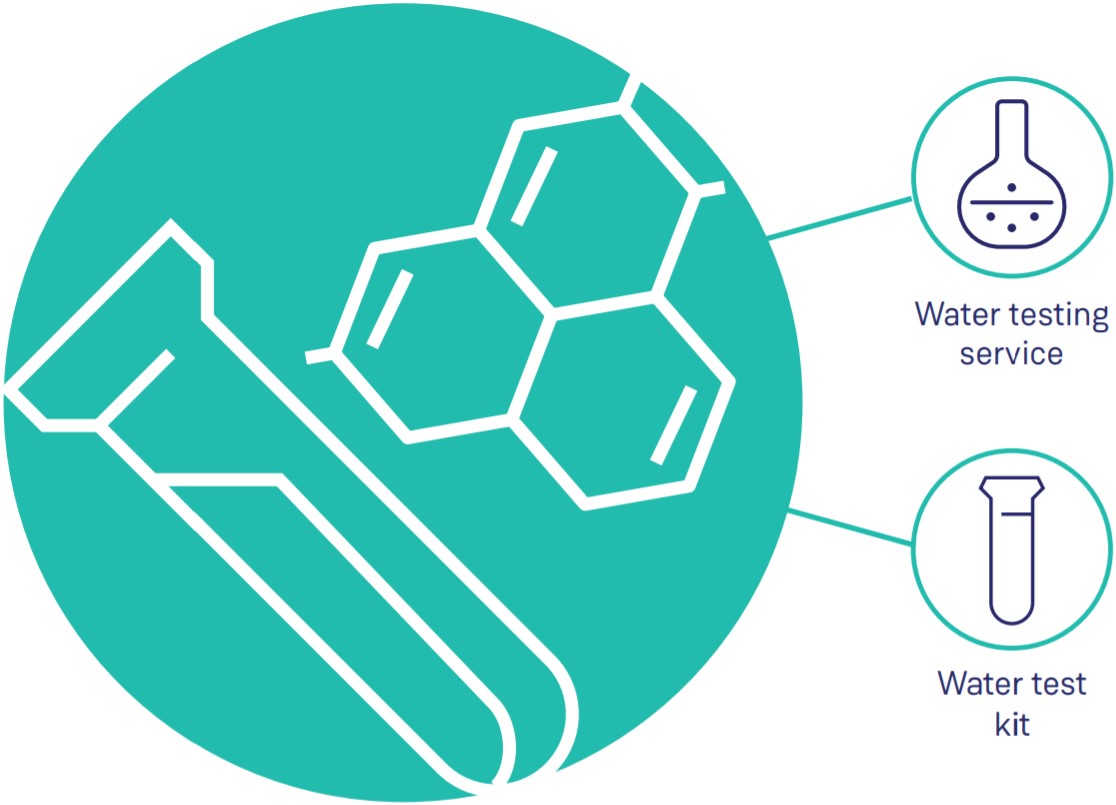
TEST
Check the system’s water regularly with our test kits. If you’re always checking, you’ll be one step ahead of any potential problems.
ACTION REQUIRED
A water test is required to test the level of inhibitor and cleanliness of the system after commissioning and annually throughout the life of the system.
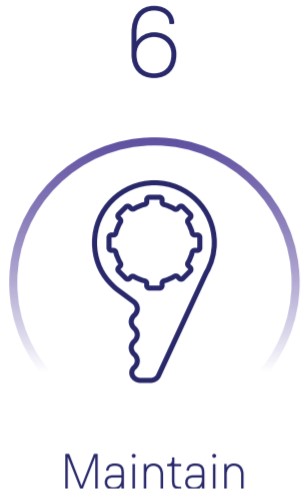
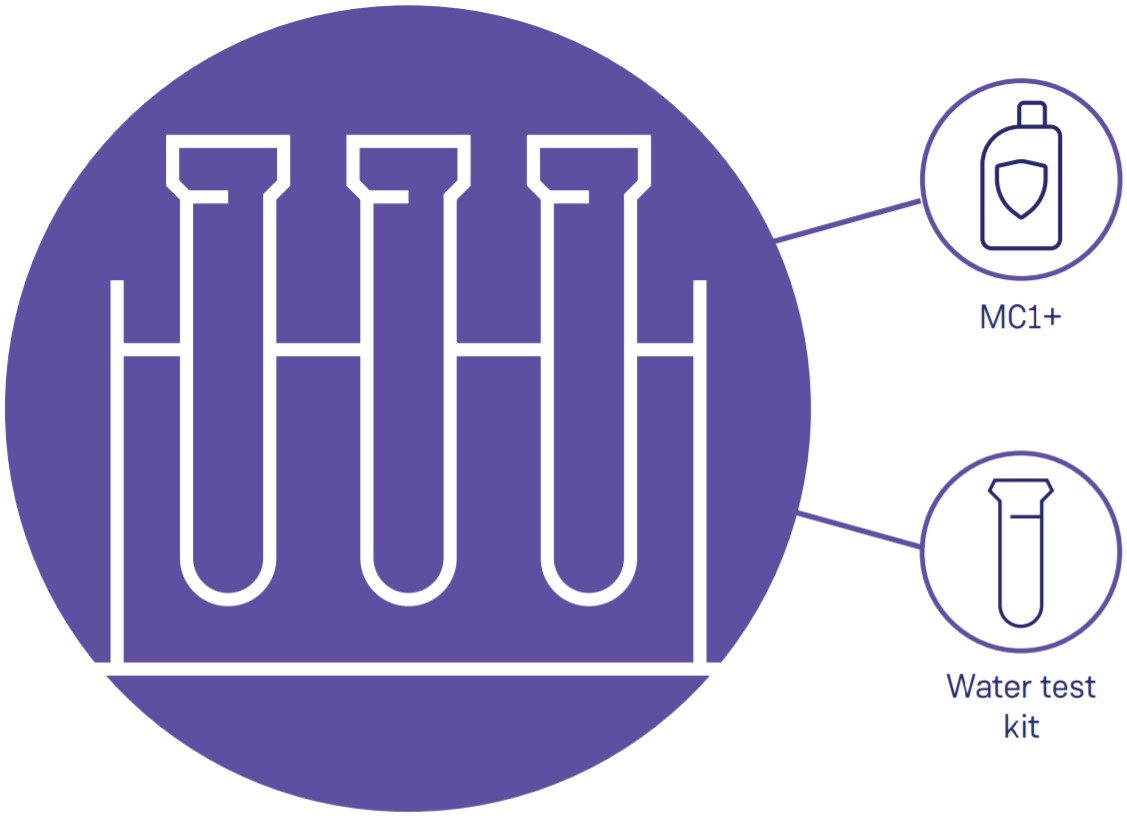
MAINTAIN
Keeping up with the maintenance provides maximum protection, whether cleaning the filter or re-dosing with chemicals.
ACTION REQUIRED
Chemical inhibitors should be re-dosed every five years, or an external laboratory test undertaken to verify that the chemicals have not degraded. Following work on the system where the protection has been significantly diluted, the inhibitor protection should be checked that it meets the manufacturer’s recommended concentration.
A Summary
- BS 7593:2019 is now applicable to both closed loop heating and cooling circuits.
- An in-line filter should be fitted to ALL systems.
- An on-site water test is required to test the level of inhibitor and cleanliness of the system every year.
- Inhibitor should be re-dosed every five-years or after a full system water test.
- Biocide is required in cooling and low temperature heating systems, and should be considered for higher temperature systems for added protection during downtime
- Cleaning methodologies improved with external magnetite capture equipment and mechanical vibration of radiators (recommended).
- For the first time, the fitting of a permanent in-line filter is required in addition to a chemical clean and fresh water flush before inhibitor is added.
References: ADEY Quick Guide ( View ).


